|
7/13/2024 0 Comments The Vicissitudes of Life**--I used this phrase in my most recent newsletter, and one of my dearest friends wrote me a wonderful email with it as the subject line. Consider this a case of virtuous recycling. It has been nearly two months since I put something new up here. Sorry/not sorry, as the saying goes. So much has happened, and I have so little to say about it, and that's a strange combination. Confronted by this dynamic in the past, I've found it best to turtle up and wait until something worthwhile comes to mind. If you're seeking mindless blather, surely there's a high-frequency, low-content Substack site out there for you. And yet, enough has changed, and enough good intentions have been met with poor follow-through, that an accounting is in order. Let's do this scattershot style: I've moved. But that's not all. Elisa covered this beautifully in her own newsletter, so I'll neither say a lot more nor take issue with any of it. She now lives in New England, her other heart earth, and I still live in Montana, mine. I'm renting space in a lovely old rambling house in my favorite Billings neighborhood, pushing on with life and art. I have a beautiful office setup that is a joy to pile into each morning. My primary work, which I find interesting and fulfilling, continues apace (you can read a piece I wrote for PaymentsJournal here). Fretless and I take walks, sometimes alone, sometimes with my roommate and her dog. I tend to my dad. I have lunch with friends. It's a good life but also a different life, and I think Elisa would say the same thing. Fiction: At a standstill Once I decided to spring Northward Dreams loose from its intended publisher, spring became a blur as I pushed out a retitled, re-jacketed version of the book and embarked on an ambitious series of appearances. Those have largely subsided as summer has come on, and it will probably be fall before I rev up again. The paperback comes out in November, and that's a good opportunity to hit the road again. I had so much fun with the hardcover. What hasn't been fun—and I'm only being honest here—is going through the wringer of publishing, which can be a heartbreaking business. Writing is the best kind of joy—challenging, yes, but also a test of self, of the quality of ideas, of endurance. Publishing...Well, if I can't say something nice, and I can't, best not to say anything at all. It's not like my travails register as important in the larger scheme of things; hell, they're not even all that interesting to me given all the ways the world is on fire (literally). But if I'm going to write stories—and I am—I will have to resolve my attitude one way or another. Right now, I feel three impulses: 1. Forget publishing altogether. 2. Find another partner like the one I just dispatched, something I never wanted to do, and approach the altar again. 3. Do with every subsequent book exactly what I did with this one. Until my heart settles, I'll do nothing. Playwriting: Stay tuned After the final curtain closed on Straight On To Stardust last fall, I set about writing a new play and turned it around quickly. It's called The Garish Sun--know your Shakespeare—and I hope to have some interesting news to pass along soon. #deliberatetease At this juncture, I'm much more interested in and satisfied by working as a dramatist than I am in writing another novel. These feelings, of course, are subject to change (and always do), so I wouldn't read anything into that declaration. Just something I wouldn't have predicted, say, three years ago. Life, man. Let's have a conversation At the beginning of July, I joined at the speaker roster at Humanities Montana. I'm thrilled about this, as a longtime admirer of and sometimes participant with this organization that advances the humanities in Montana's public life. My program, titled Where Memory and Imagination Meet, draws on subjects that have long held fascination for me—the roles of memory as an ignition point and imagination as the building blocks of fiction—but expands the idea to take in such diverse topics as family, background, community, even citizenship. When we talk about our memories of the things that shaped us and marry those with imagining different ways of talking and connecting, great things can happen. My program, like all the others sponsored by Humanities Montana, is available to schools, libraries, civic groups, and other such gatherings. Information at the link above. If you have a group in Montana that would benefit from this conversation, let's talk! Yeah, but what about all the other stuff? Oh, you mean Craig Reads the Classics? The Saturday craft talks? General keeping in touch?
What can I say? I've been quiet lately. But I'll be back. That's a promise.
0 Comments
5/21/2024 0 Comments Texas. Redux.
I wrote about my home* state several weeks ago. It was a wide-angle, pulled-back view, and I thought I'd unloaded what was in my heart and my head. But here I go again...
No, really, here I go. It's a quick trip this time, not my usual two-day drive down, weeklong stay, and two-day drive back. I'm going for a reading and signing at a bookstore in Keller, the once-sleepy town just north of where I grew up. Like other parts of the North Texas I once knew, it doesn't really match up with my memories anymore. It's bigger, more congested, more diverse, more interesting.
The book I'm taking with me, Northward Dreams, is the most personal piece of fiction I've ever written. The best thing I've ever written, too, not that anyone should trust me to judge such a thing. I'm proud of it. I'm proud of how I willed it into existence. And I really, really want to share it with the people who underpin it, in ways subtle and overt. They're in the book, all of them, whether they would recognize themselves or not. They're in it because they're in me, in the memories I carry around.
To that end, I sent out about 100 postcards earlier this year, addressed to people from across the years I spent in Texas: classmates, old neighbors, former bosses, teachers, colleagues, friends, former lovers. I asked them to come out and see me and to meet this book, to renew acquaintances or to prolong friendships that never ran dry. I'm hoping to see a constellation of faces I recognize come Saturday, but I've also put this event squarely in a holiday weekend, so who knows? I haven't always done a wonderful job of staying in touch as I've wandered the country, looking for the place I'd call home. I found it, years ago. But I've also come to realize that the place I'm from—as much as I'm from anywhere—is also home and always will be.
When I say Northward Dreams is my most personal book, I'm thinking, among other things, about this snippet from one of the four timelines the novel covers. Here, in 1972, Electra and her little boy have arrived at their new home in Texas:
After they’ve gone downstairs, after Electra has made her assessment of the pantry, after she’s pictured the days stretched out before them, after Nathan, red-faced and watery-eyed, has come down and asked for a glass of water, after Charley has fetched the rest of their things and stacked them by the door for sorting out later, after they’ve come back up the stairs, quieter, the three of them lie askew on the king bed. Charley is on his side, head propped up by an angular arm. Electra lies far opposite of him, attentive to her son, and Nathan sleeps in between, curled like a kitten’s paw and under a loose blanket. Electra reaches across the distance, and Charley takes her hand. “Probably not what you expected.” “It’s everything I expected,” he whispers. “You?” “It’s what I want,” she says. “Me, too.” “He’s really a good boy,” she says. “I know.” “It’s a lot to deal with.” “It is.” Charley sits himself up, careful not to jostle the boy. “Kids are resilient, though. I ever tell you about when we moved from Vernon to Wichita Falls?” “No. I’d remember.” “You went through both towns,” he says. “I know.” “I wish I could have been there.” “I know,” she says. “Fifty-some miles, might as well have been moving from earth to the moon. I was nine. Everything I knew, every friend I had, they were all in Vernon, but my dad, he was a history teacher, and the high school in Wichita Falls, they offered him $15 more a week, so we moved. I didn’t have any say.” “Had to be hard at that age.” She’s thinking now of Nathan’s best friends, the Miles boy two doors down and the Fletcher kid, the one she doesn’t much like but whom Nathan adores, and how she plucked him up and took him away without his getting to say goodbye. She hurts for him in a way that she hasn’t allowed herself to think about until now. “Hard at any age,” Charley says. “But the thing is, in the end, I made new friends. Wichita Falls became home, every bit as much as Vernon had been. I adjusted. He’ll adjust, too.” “Tomorrow,” she says, more thoughts she’s held at bay rushing toward her now. Enrolling Nathan in school. Finding a job. Learning where the supermarket is. “It’ll all get done,” he says, as if inside her head. It’s a talent he has. She leans across and kisses him for the first time. Where all of that comes from is both imagination and memory, little snippets that I heard, others I conjured, all of it front and center in my brain, ready to be accessed when I got hold of a story that needed it. This story. This place. Another time of life, forever salient because the decisions that were made had such gravity to them that their effects radiated out to lives yet to be launched. It's powerful stuff, fiction. Often more powerful than the real life that informs it. We've been headed here all along, haven't we? The book's first full chapter begins with Nathan. The book's last interceding chapter ends with Nathan. He stands as the pivotal character in an ensemble, the one who can still change his course, if only he has the courage. Others have made their choices and lived, or died, with them. A lot is behind Nathan. More could yet be ahead. There's not much else I want to say, except this: For me, the suggestion of future change is the most satisfying part of literary characters. I'm far more interested in the idea that they could change than the actual shape and scope of that change. It's why I like open-ended endings so much: Presumably, life goes on, until it doesn't. While we're sentient and breathing, it's within us to deviate our path. Thanks for reading. (Be sure to note in the comment box that you wish for a signed copy.) (Purchases through Bookshop.org can be dedicated to the independent bookstore of your choice, an excellent option for those who prefer online shopping.) PreviouslyOf these nine timeline-busting chapters—just one to go after today—this one is the anomaly. It features a character who never appears on camera, as it were. Brandon Ray, son of Nathan, grandson of Ronnie, interacts with his father in phone calls that are clipped, distant, and loaded up with tension. And yet, he's essential, in that the book traffics heavily in fathers and sons and what gets passed on and where the fault lines lie. Brandon and his father are mirrors and opposites, a dynamic that also follows daughter (Cherie) and mother (Anna) in another timeline. Brandon was largely raised by another man—quite successfully, Nathan knows, and that's a source of pride and an unwanted memory, given his own path. And there's something between them—something bigger and more immediate than their shared past—and in this chapter Brandon lays out the choice the older man has in the matter. It's in the book. (Be sure to note in the comment box that you wish for a signed copy.) (Purchases through Bookshop.org can be dedicated to the independent bookstore of your choice, an excellent option for those who prefer online shopping.) PreviouslyOne of the interesting things about human development—to me, at least—is the occasional alignment with physics in the equal-and-opposite-reaction sense. Cherie, the centering character of the 2002 timeline in Northward Dreams, is uncommonly wise and strong for her age. Her mother, Anna, provides some of the underpinning for these qualities through her frailty and failures. Together, they make for a compelling pair. There's love and genetic bonding and deep care and frustration and exasperation. Cherie exists because Anna created her. Cherie is who she is, in part, because she must compensate for her mother. That's a hard road. Anna's inserted chapter arrives fairly late in the entire span of the book. She has made a fateful decision, the kind we don't get to walk back once it's in place. There's not a whole lot more to say without saying too much. You should read the book. (Be sure to note in the comment box that you wish for a signed copy.) (Purchases through Bookshop.org can be dedicated to the independent bookstore of your choice, an excellent option for those who prefer online shopping.) PreviouslyAh, Cherie. The youngest member of our ensemble, perhaps the wisest, certainly the one whose searching heart sets in motion the denouement of a book and, perhaps, beyond the page, the resetting of a troubled family. I so enjoyed writing this character, the only one central to the book who was also conjured from whole cloth. When the timelines at last converge, just beyond the pages of this inserted chapter, it's Cherie who brings them together. Cherie comes a long way in the 316 pages of this novel. When we meet her, in her 2002 timeline, she is a recent high school graduate with the onerous task of helping her emotionally feeble mother, Anna, settle her grandmother's estate. Cherie, just 18, has already experienced how the vicissitudes of life can undermine the best-laid plans. She's tired. She's also indomitable. By the time her inserted chapter rolls around, she's 10 years older, a bit more beaten down, carrying even bigger losses than before. She's ready for a change. She gets that, and so much more. (Be sure to note in the comment box that you wish for a signed copy.) (Purchases through Bookshop.org can be dedicated to the independent bookstore of your choice, an excellent option for those who prefer online shopping.) PreviouslyNow we come to a man in Northward Dreams who's misunderstood, misjudged, and taken too lightly. He's also a ghost and a whisper in time. He's the father sixteen-year-old Ronnie, in the 1952 timeline, reaches faithfully toward. He ends up being the car bumper in the dog's teeth. You've got him. What are you going to do now? When Oscar's timeline-breaking chapter comes in, roughly halfway through the book, it's the dawn of the 1970s, and he's far afield of where we discover him in the main narrative, working his handyman schemes. In an episode of Rich Ehisen's Open Mic podcast, I described Oscar as walking unwittingly into the teeth of his own demise. An excerpt: That's the thing about rooking people out of what's dear to them. It doesn't always work—and when it goes wrong, it's sometimes spectacularly so—but the cops almost never get called. The shame of it all is too great. How could they be so stupid, so naive? It's what you count on—that they are, in fact, so stupid, and that when the deed goes down, one way or another, their primary concern is making sure nobody else finds out. Isn't it pretty to think so, Oscar, you fated man? Read on... (Be sure to note in the comment box that you wish for a signed copy.) (Purchases through Bookshop.org can be dedicated to the independent bookstore of your choice, an excellent option for those who prefer online shopping.) PreviouslySo I hear what you're saying: "Craig," you're saying, "just how much of this thing is memory and just how much is imagination? You're hinting at both, but you're not really giving me the scoop. Is Northward Dreams mostly memory or mostly imagination?" Yes. That's my answer. OK, OK, so as we dive deeper into the characters and their breakout chapters, here's where the imagination definitively comes in. Erica Stidham--Charley's eventual wife, Ronnie's former wife, Nathan/Nate's forever mom, a woman with her own power dependent on no man—is no longer with us. The woman whose life provided some inspiration for her—remember the great gift I talked about in the previous installment—is most assuredly still here. She's my mother. I ought to know. You happy now? A minor bit of craft talk: When I start writing something new, I usually know little about what is going to happen but much about who will be in the middle of it. That was mostly true for Northward Dreams, save for one character: Electra. I always knew she'd be leaving early, mostly because I deeply knew the pain her son was in, and would have to be in, and would spend the story fighting against. And sure enough, when the structure of the story began taking shape, we eventually got to Electra, and her busting loose from the established timelines had to happen in a way that fortified the loss of a little boy who grew to be a good, flawed, troubled man: It's one of the cruel jokes of the universe, that he'd come to you not a year and a half ago and said, Am I going to die someday? ... You'd had to sit him down for one of the Big Talks that's in all the child development books, and you'd had to explain that, yes, he will die someday, we all die after all, but not for a long, long time. Are you and Charley going to die? Yes, but not for a long, long time. Daddy? Yes. But again... More craft talk: I mention empathy a lot. It's an essential ingredient. When a memory prompts an idea, imagination sweeps in and leaves you with characters whose defining characteristics and subtleties are yet to be discovered. Empathy—understanding them and their thoughts, choices, and motivations—is the pathway to realizing what you wish to do with the work. I found empathy with Electra, and found her to have surface-level commonalities with my mother but also to possess qualities that were uniquely hers. I didn't have to imagine my mother's death—and good, because I would have hated to contemplate that. I had to feel what losing Electra would be like—her own sense of it, yes, but also, and especially, what it would do to her child. It was a gut punch, both ways. (Be sure to note in the comment box that you wish for a signed copy. (Purchases through Bookshop.org can be dedicated to the independent bookstore of your choice, an excellent option for those who prefer online shopping.) PreviouslyOnward we go into primary, secondary, and even tertiary characters from Northward Dreams who break away from the main narrative in a series of chapters that exist beyond the boundaries of the book's four established timelines. My role is not to play favorites with characters. My job, such as it is, lies in achieving empathy with all of them, listening to what they have to say, and, at least in the case of these chapters, talking to them. But if I were inclined to play favorites, Charley might well be my choice. You don't have to know a lot about me to know why. The most consequential male role model in my life is my stepfather. That my mother imagined something different for our lives and took us to him remains the single biggest gift I'll ever receive. That's well-covered ground. One could argue—I certainly would—that without that gift, this novel wouldn't have come to me. I would further surmise that the writing life itself might have been beyond my reach without that gift's presence, but that is an unknowable for which I am grateful. As I often say, though, there is memory (what actually happened, or what we perceive happened in our faulty hindsight), there is imagination (the fanciful stuff of world- and character-building), and there is what comes where the two meet. Charley Stidham won't tell you a thing about the life of the boy I was (and why should you be interested?). He'll tell you much about what it is to love, and to yearn, and to find gifts in the unexpected. As Charley's chapter dawns, he is arriving at the concluding paragraph of a life spent with words. Retirement. It's 2005, and he has seen a lot. There have been losses along the way, as there are for anyone with the audacity to live long enough to see them. He also has a whale of a surprise lurking at a public event he reluctantly attends: You're struck by something. You can still hear her when his mouth flies open, can see her inside his eyes and the small of his mouth, remember the way she would sometimes throw herself between the two of you in a fraught moment, until she learned to trust, and until you made your own way with him and all of you became a three-legged family and learned how to lope along together. And then... And then? You'll have to read the book. (Be sure to note in the comment box that you wish for a signed copy.) (Purchases through Bookshop.org can be dedicated to the independent bookstore of your choice, an excellent option for those who prefer online shopping.) PreviouslyThis is a continuation of the look at various characters from Northward Dreams and how they're presented outside the four established timelines in a series of inserted chapters. If Opal Knudsen, the subject who opens the book, is the master key to the story, Ronnie Ray is the rippling thread that runs through it: a sixteen-year-old runaway in search of connection in 1952; a man being run from twenty years later, one who feels as though something has been taken from him; and the elderly puzzlement to his troubled adult son in 2012, when at last all the timelines converge. Ronnie was fascinating to write, not least of all because I both understand him on a cellular level—the pain, the incompleteness, the inability to rise to the needs of someone else—and because I've spent a lifetime trying to connect with an older man (my father) to whom I'm tethered, to whom I give love, and whom I'd never, ever in a million years choose to know if he hadn't come to me in the bargain that comes with being granted life. How's that for a tease? Ronnie's broken-out chapter takes place in the early 1960s, roughly a decade after his boyhood reaching out and roughly a decade before he loses his wife and son to his inattention and the call of a better life. He's just out of the Army, he has undertaken something he was once warned not to do, and he's thrashing about. Excerpt: So you tell Electra that you've had your fill, that it's not working, that you want to go, and you know she's happy with that, because she wants to go, too. The occasional night out in Great Falls, some dancing and too much drink, just isn't cutting it. And here, on this lonely bench, she knows both too much and not enough. She's restless. She wants a baby, and you can't even begin to picture that, but she tells you there's a time coming when it'll happen and it'll be right, and that time won't come as long as the two of you are here. Want to know more? I hope so. (Be sure to note in comment box that you wish for a signed copy.) (Purchases through Bookshop.org can be dedicated to the independent bookstore of your choice, an excellent option for those who prefer online shopping.)
|
About CraigCraig Lancaster is an author, an editor, a publication designer, a layabout, a largely frustrated Dallas Mavericks fan, an eater of breakfast, a dreamer of dreams, a husband, a brother, a son, an uncle. And most of all, a man who values a T-shirt. Archives
July 2024
By categoryAll 600 Hours Of Edward And It Will Be A Beautiful Life Awards Books Bookstores Community Connection Craft Craig Reads The Classics Dreaming Northward Education Edward Adrift Family Geography History Libraries Memory Montana NaNoWriMo Northward Dreams People Plays Poetry Public Policy Q&A Social Media Sports Stage Texas The Fallow Season Of Hugo Hunter The Summer Son This Is What I Want Time Travel Work Writers Writing Archives
July 2024
|




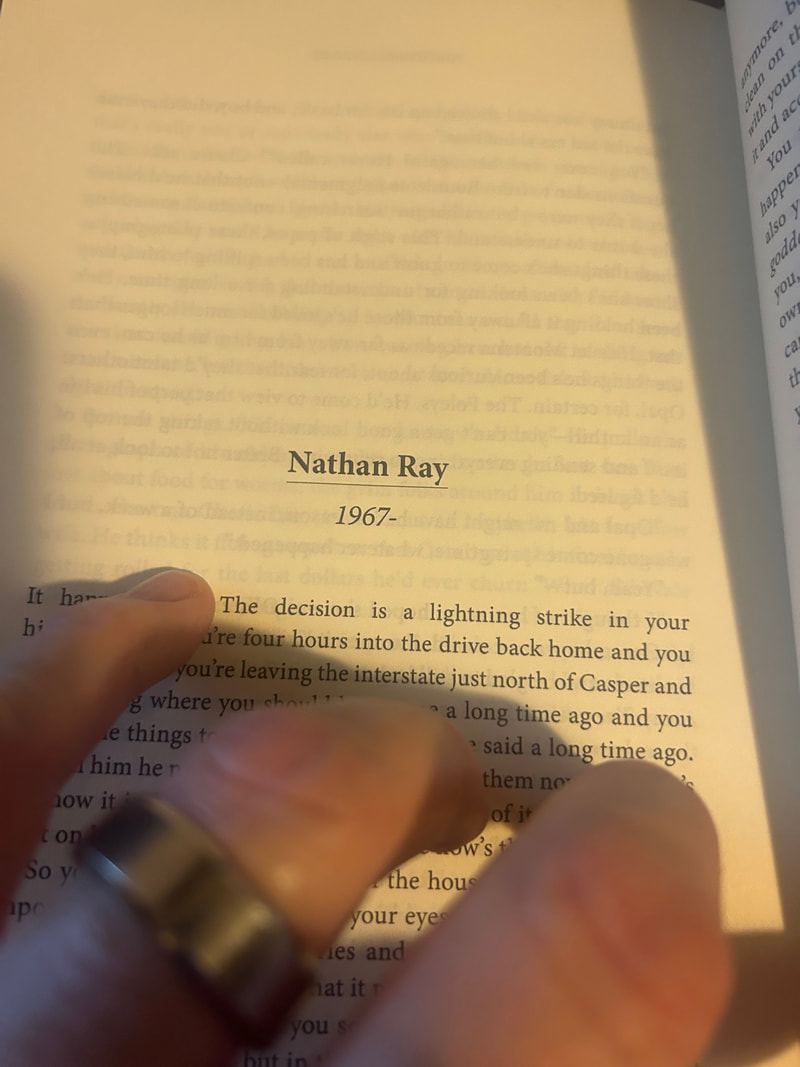
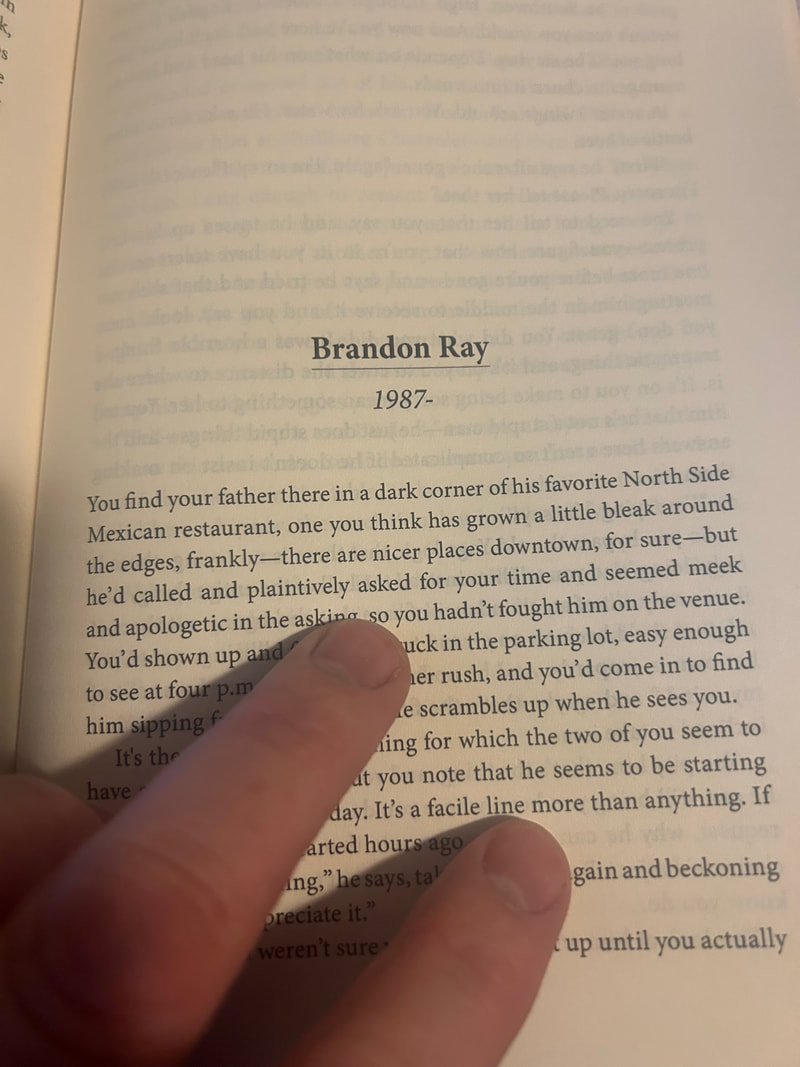

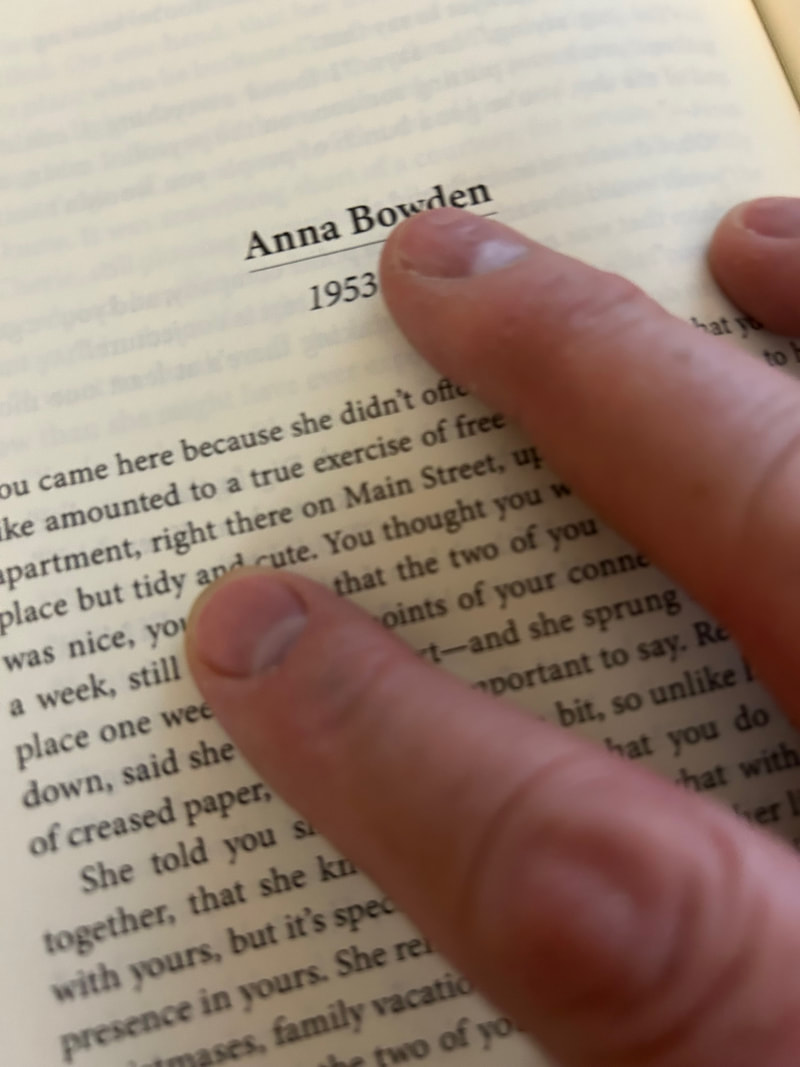

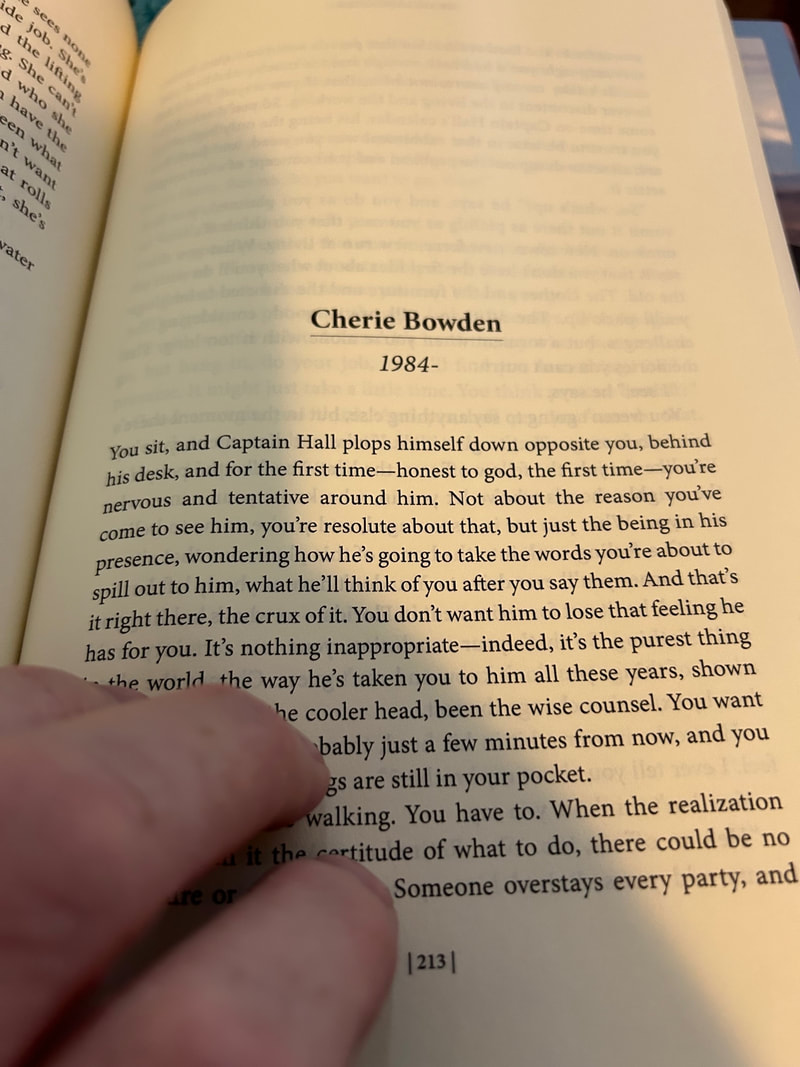

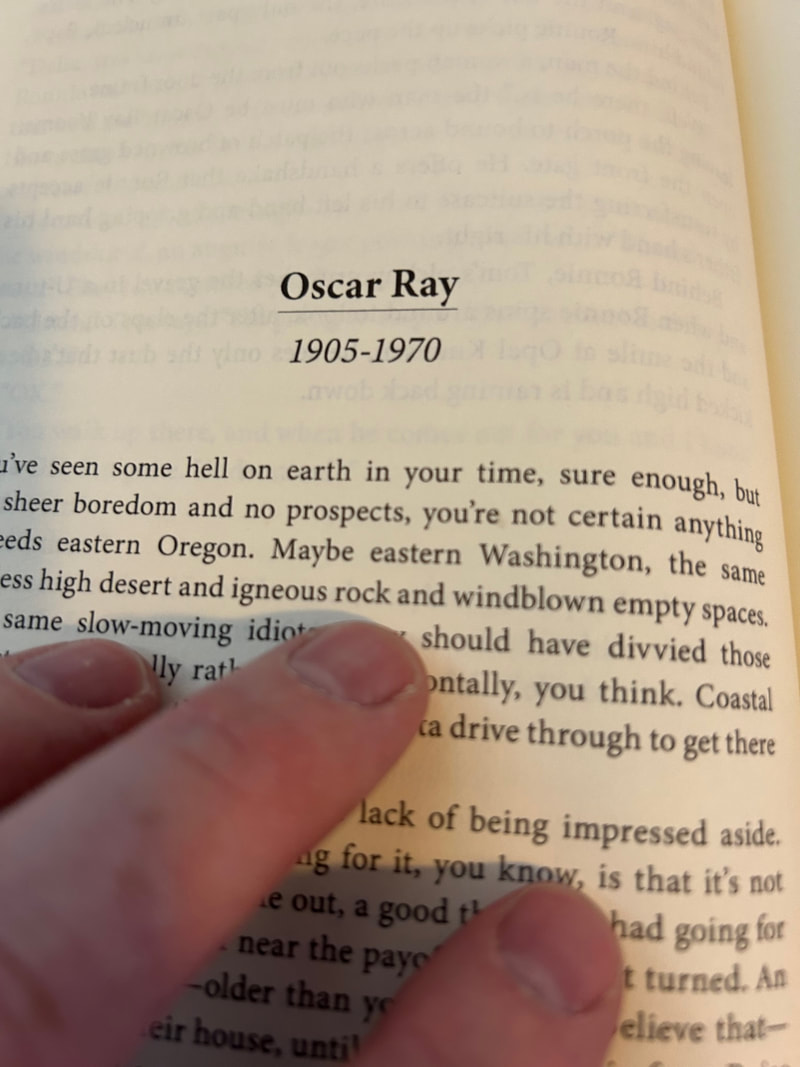
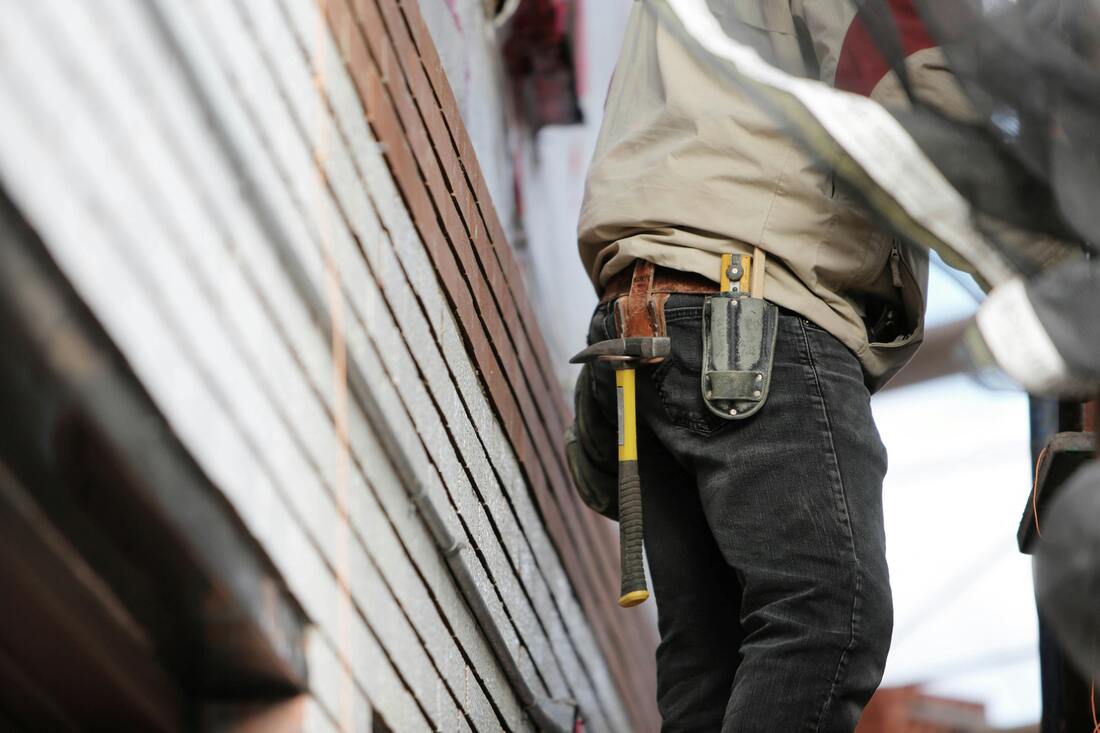
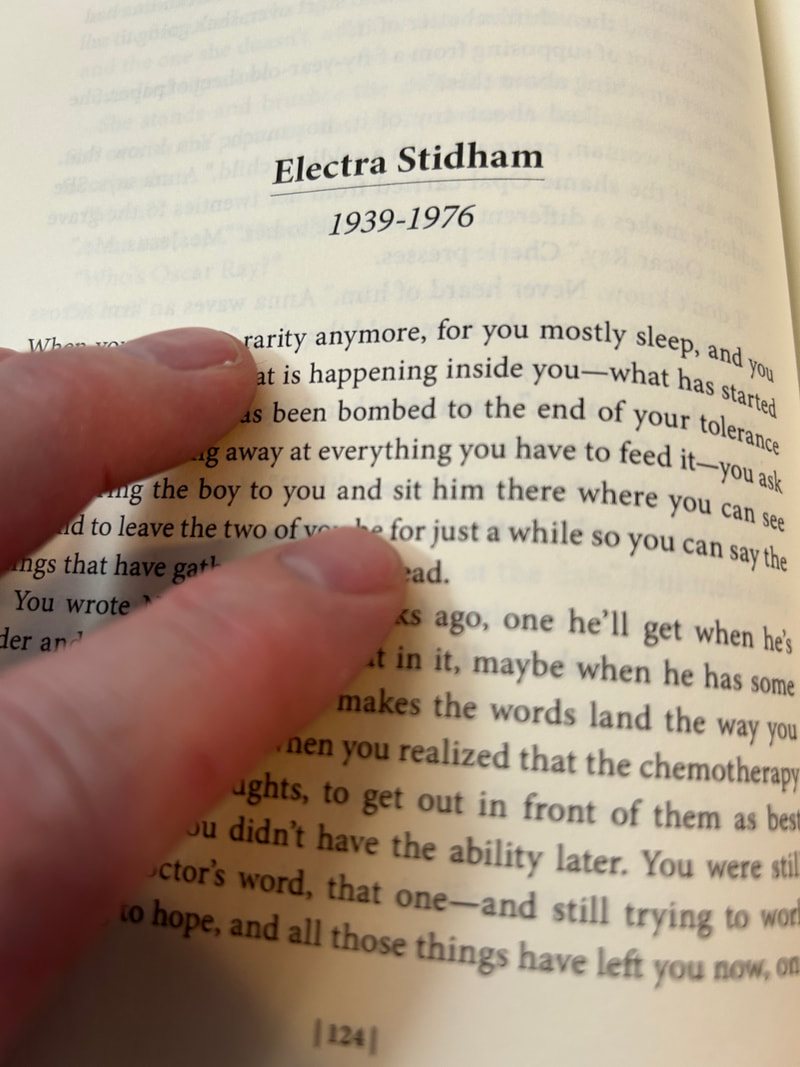

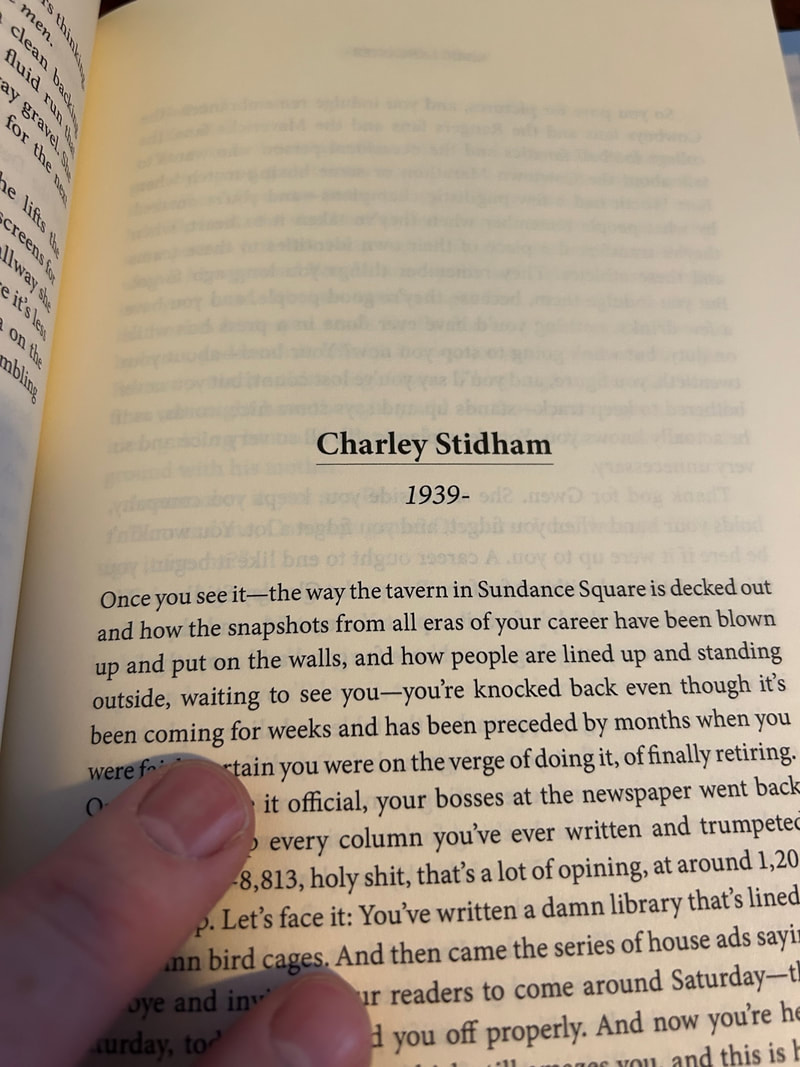
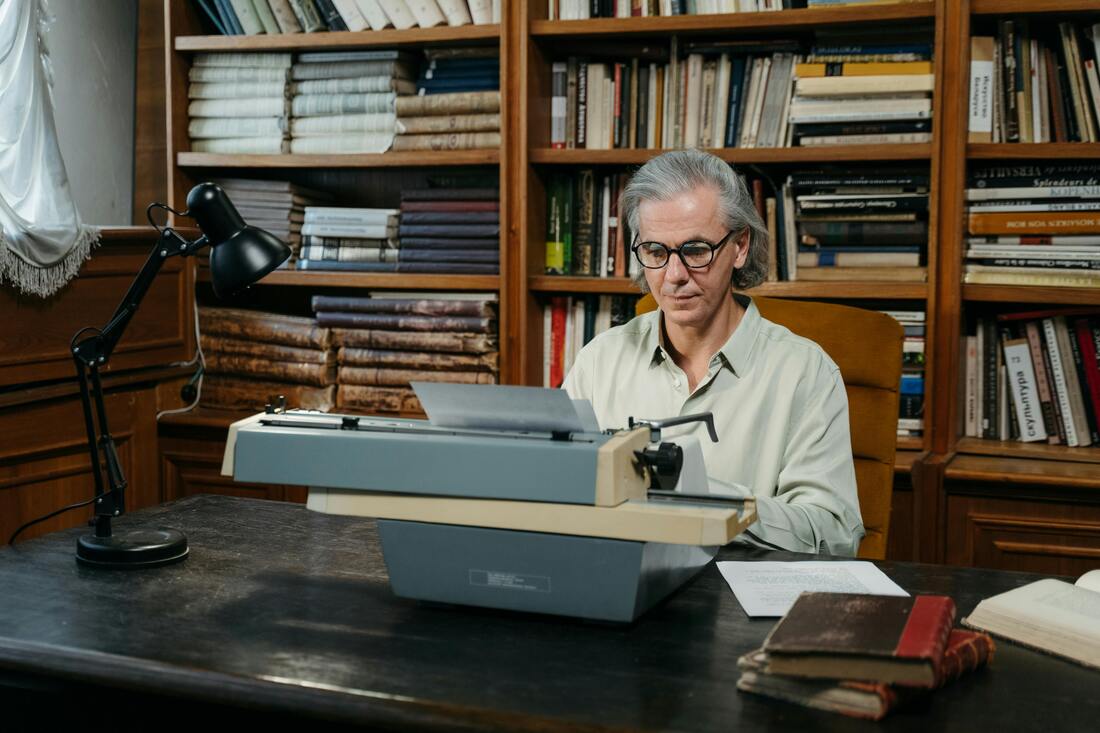
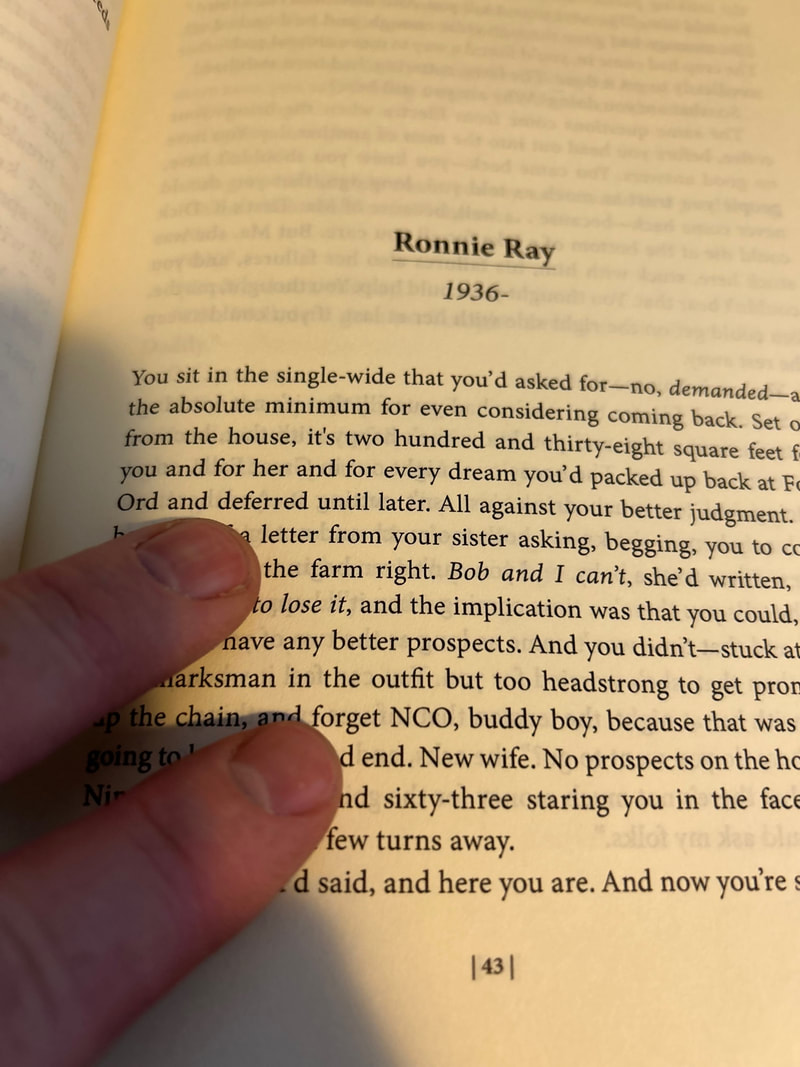
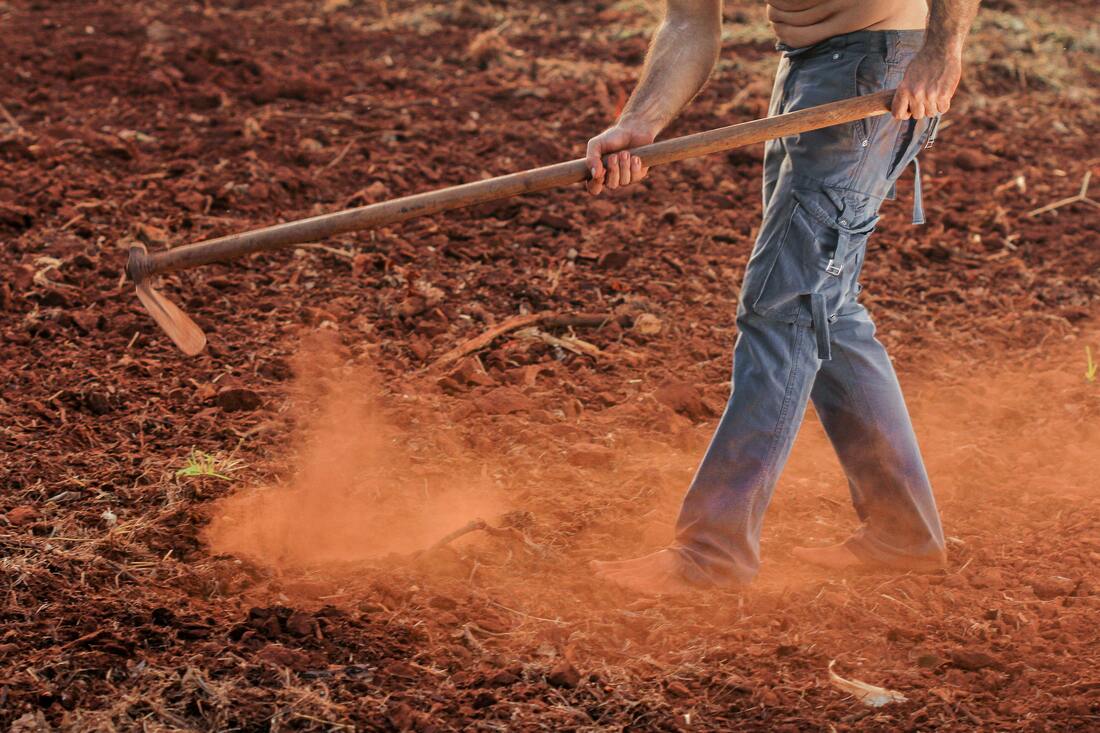
 RSS Feed
RSS Feed